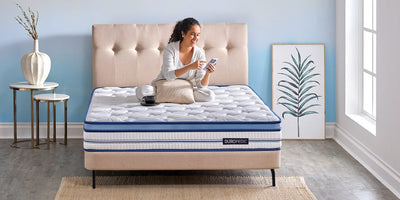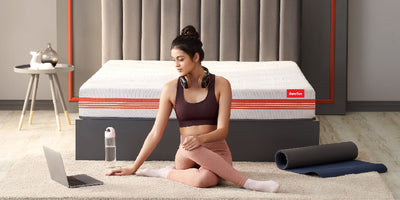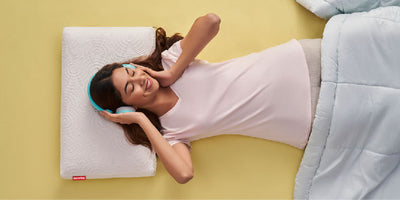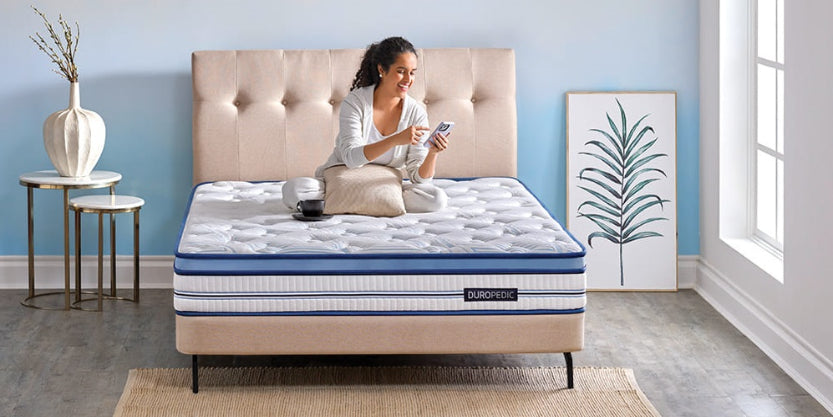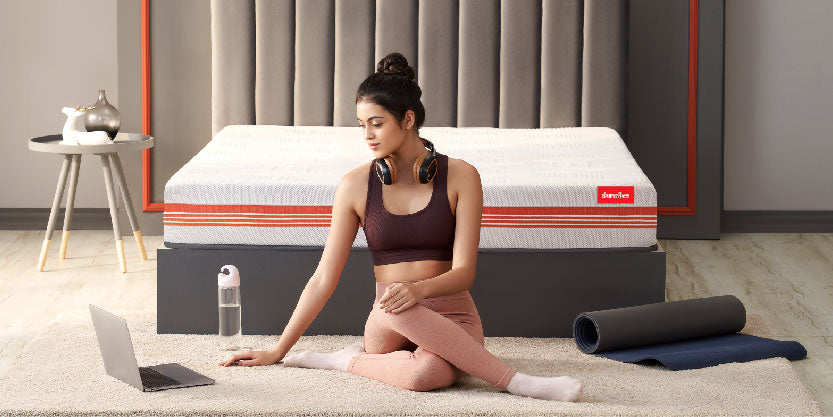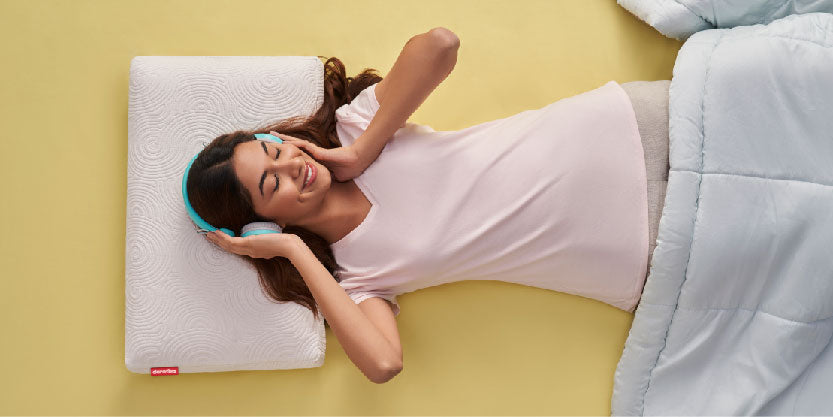There are quite a few choices to make when it comes time to furnish your bedroom - everything from the bed frame and mattress type to the curtains and bedding. And when it comes to choosing between bed sheets made from microfiber or cotton, which is the best option?
There are pros and cons to both options, but which one should you choose for your bed? Let's take a closer look.
Microfiber Sheets
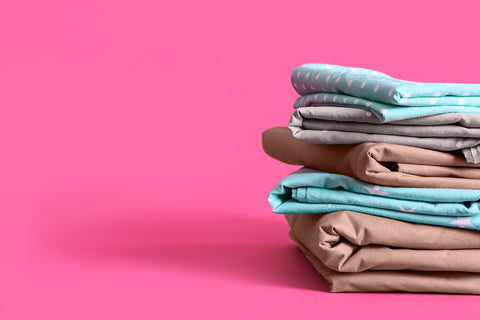
Microfiber bed sheets are a popular choice for people looking for bedding that is easier to maintain. Microfiber sheets are made from synthetic materials, typically polyester or nylon. They are often touted as softer, wrinkle-resistant, durable, smoother, and easier to clean. Microfiber bed sheets come in a variety of colors and designs, so you can find the perfect set to match your style. These sheets are often less expensive than cotton sheets, which is a plus if you're looking for economical options. However, they can also be less breathable than cotton sheets.
Here are the advantages of using microfiber sheets:
- Gentle & Soft
- Low Maintenance
- Highly Durable
Gentle & Soft - Because of the numerous materials and finely woven threads that make up the sheet's composition, high-quality microfiber sheets are incredibly soft to the touch. These sheets can be comforting to lie on. However, the various materials utilized to make the thread can also cause irritations to people with sensitive skin.
Low Maintenance - Microfiber sheets are low-maintenance since they can be washed and dried without special detergents or instructions. They can be cleaned regularly in your washing machine and will retain their form and size after drying.
Highly Durable - Microfiber sheets are highly durable. While cotton sheets have always been one of the most durable sheet kinds, microfiber can also resist several washes and extended use.
Cotton Bedsheets

Cotton bed sheets are the perfect choice for a comfortable and restful sleep. As they are made from natural fibers, cotton sheets allow your skin to breathe, keeping you cool all night long. They are also hypoallergenic, making them a great choice for people with allergies or sensitive skin.
Cotton sheets are available in various colors and styles to match any bedroom décor. They are also easy to care for, requiring only a simple machine wash and dry. However, one must avoid washing them in hot water or drying them in harsh sunlight to prevent shrinking and fading.
Here are the advantages of using cotton bedsheets:
- Highly comfortable
- Skin-friendly & Allergy Resistant
- Durable
- Low maintenance
Highly Comfortable - Cotton is natural, making it ideal for bedding. The sheets are exceptionally comfortable due to the natural elements. This feature is really useful because it allows us to remain comfortable during our sleep cycle. The cotton fabric absorbs excess heat and moisture from our bodies, allowing us to sleep soundly.
Skin-friendly & Allergy Resistant - Cotton bedding is hypoallergenic. Polyester and other fabrics, for example, may cause irritations if you have a sensitive skin, but you won't have to worry about that with pure cotton sheets. Cotton sheets are perfect for exceptionally sensitive skin.
Durable - Premium cotton bedding can save you money in the long run and provide a slew of additional advantages, both health-related and otherwise. It's tempting to choose a less expensive option because high-quality cotton can be expensive. However, considering the long life of your cotton bedding, it is well worth the money.
Low-Maintenance - Cotton bed linens do not necessarily need to be washed with hand. Most cotton bedsheets can be tossed into the washing machine and spun gently. However, as a measure of safety, you may want to wash dark and light colours separately. There are no special detergents required.
Now that you've learned a little more about the many bed sheets on the market, you might want to switch things up and choose a different variety for your bed! After all, shouldn't someone who spends nearly a third of their time resting and dozing is comfortable and stylish?
Differences Between Microfiber And Cotton Bed Sheets
Differences Between Microfiber And Cotton Bed Sheets
1. Material:
- Cotton: Cotton sheets are made from natural cotton fibers harvested from cotton plants. The most common types of cotton used in sheets are regular cotton, Egyptian cotton, and Pima cotton, with Egyptian and Pima cotton being considered premium choices.
- Microfiber: Microfiber sheets are made from finely woven synthetic fibers, typically a blend of polyester and sometimes nylon. The fibers are incredibly thin, often finer than a human hair.
- Cotton: Cotton sheets are known for their natural softness and breathability. They have a crisp, cool feel against the skin, and the texture can vary depending on the type of cotton and weave used.
- Microfiber: Microfiber sheets are typically smooth and have a silky texture. They may not have the same level of initial softness as cotton, but they can become softer with repeated washings.
- Cotton: Cotton is highly breathable and has natural moisture-wicking properties. It helps keep you cool in hot weather and warm in cold weather, making it an excellent choice for year-round comfort.
- Microfiber: Microfiber sheets are less breathable than cotton. While they can be comfortable, they may not regulate temperature as effectively, which could lead to overheating in warm conditions.
- Cotton: High-quality cotton sheets, such as those made from Egyptian or Pima cotton, are known for their durability and can last for many years with proper care. They tend to withstand repeated washings well.
- Microfiber: Microfiber sheets are generally durable and resistant to pilling. They can also last a long time, but their longevity may not match that of premium cotton sheets.
- Cotton: Cotton sheets require more maintenance. They may wrinkle easily and may need ironing or additional care to maintain their appearance.
- Microfiber: Microfiber sheets are less prone to wrinkles and are often more low-maintenance. They tend to come out of the dryer relatively wrinkle-free.
- Cotton: High-quality cotton sheets, especially those made from Egyptian or Pima cotton, can be more expensive than microfiber sheets. However, they are often considered an investment due to their durability and comfort.
- Microfiber: Microfiber sheets are generally more budget-friendly and offer good value for the price.
- Cotton: Cotton is a natural material and is less likely to trigger allergies compared to synthetic materials.
- Microfiber: Microfiber is hypoallergenic and less likely to harbor allergens like dust mites, making it a good choice for allergy sufferers.
